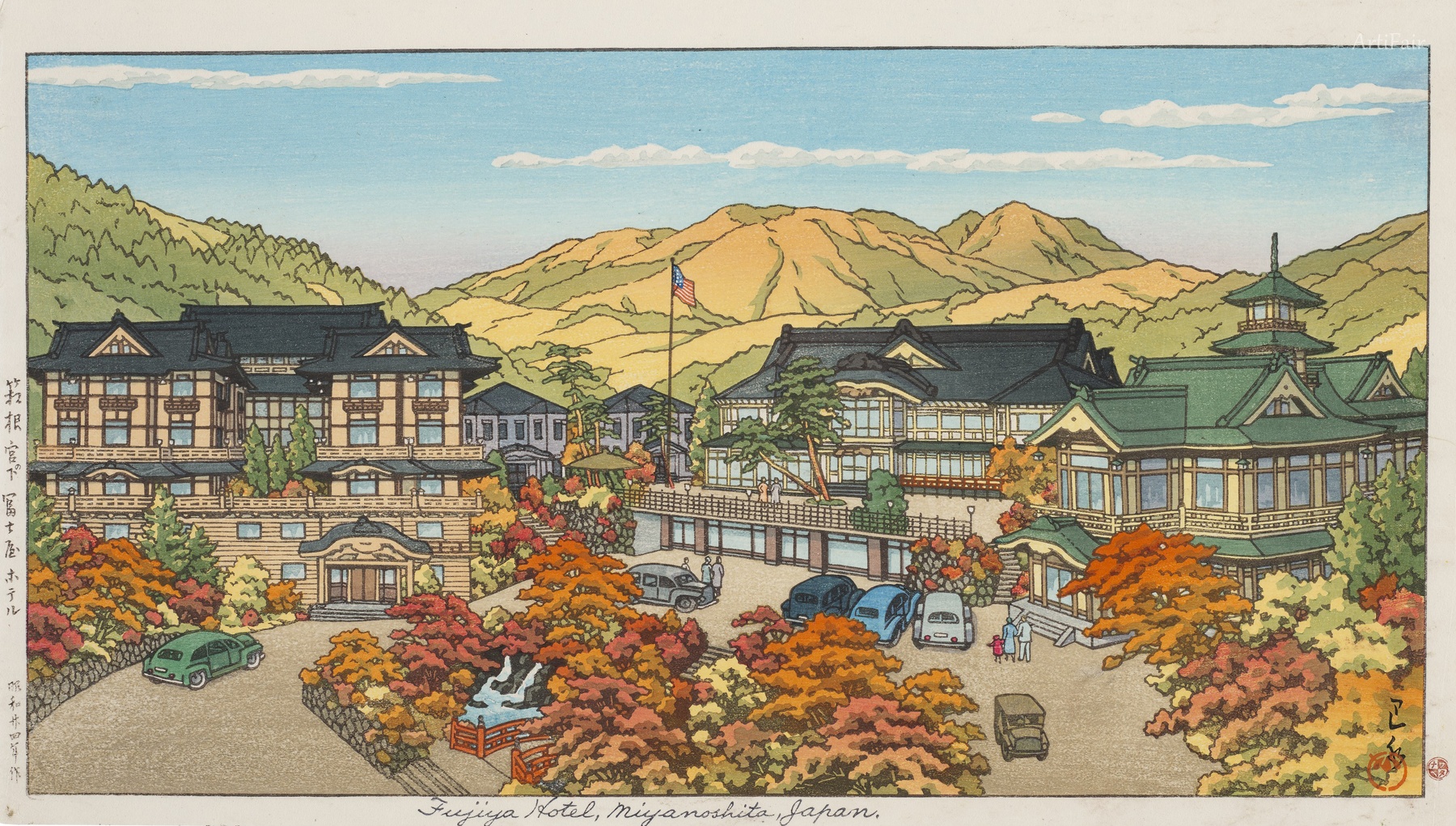
Art Appreciation
This mesmerizing woodblock print captures the tranquil beauty of a traditional hotel nestled amid the vivid autumnal hues of Japanese foliage. The scene is framed by rugged hills under a serene blue sky, evoking a sense of calm and timelessness. Delicately etched lines define the architecture — a harmonious blend of classic Japanese design with tiled roofs and wooden structures — while the rich color palette dazzles with reds, oranges, and yellows, creating a warm embrace around the grand hotel complex. Small figures and vintage cars bring life to the peaceful setting, inviting the viewer to imagine the gentle rustling of leaves and the crisp mountain air.
Rendered with meticulous precision, the print showcases the artist's mastery of traditional ukiyo-e techniques: fine gradation of colors through the layering of pigments, and a crisp clarity in every architectural detail and natural element. The composition leads the eye effortlessly from the bustling driveway lined with autumn foliage toward the distant rolling mountains, establishing a soothing rhythm. This 1949 portrayal not only reflects Japan’s cultural heritage but also the post-war era’s introspective return to natural and scenic appreciation. The emotional resonance is quietly powerful—conveying nostalgia, serenity, and reverence for the harmonious coexistence of man-made beauty and nature.